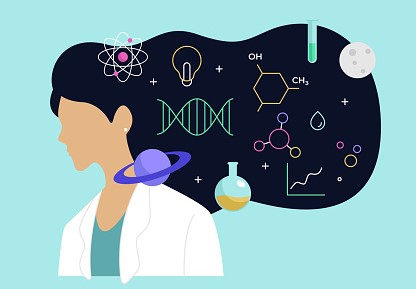Sharpen Your Mind With Scientific Thinking


Were you the kind to sit through hours of Bill Nye The Science Guy and Backyard Science on television instead of watching regular cartoons like Doraemon or Pokemon? Did Discovery Channel and National Geographic pique your interest far more significant than Art Attack? Did you try to decipher The Theory Of Everything just like Stephen Hawking on your way to school, while daydreaming about all the ways you could ace that Science project in class? Then you’ve got a knack for the timeless concepts of science.
Science forms the core of all that we are and all that we do, and scientific thinking is a skill that is ingrained in some of us and practised and perfected with time for most of us. Science drives how we perceive our reality and motivates how we act and respond to various situations. Thinking scientifically is a fundamental skill that all human beings need for survival. For some, however, science is a passion. Scientific thinking can be defined as one’s grasp over science as a discipline, be it Physics, Chemistry, Mathematics or Biology.
How can scientific thinking be developed?
Any form of skill is developed through knowledge and in the field of science, knowledge is of primary significance. Scientific thinking as a tangible skill depends entirely on the scientific knowledge one has cultivated throughout life.
Apart from paying close attention to Science subjects in school and staying on top of all your science classes, scientific knowledge can be developed through practising and observing the myriad scientific phenomena that occur in our everyday lives.
As an everyday crash course in developing effective scientific thinking skills, one might read the Encyclopedia of Science several times or buy a science kit to practice various experiments in your free time, such as using baking soda to cause a mini-explosion, constructing a sun-dial, exploring Chromatography, or the good-old building an electrical circuit to light up a bulb, which provides a scientific thinker with joy like no other.
Who are scientific thinkers and why is it essential?
You don’t need to be as great a scientist as Albert Einstein or Richard Feynman to become a scientific thinker, the quality of scientific thinking is not just limited to path-breaking invention and discoveries, it can simply mean possessing the attributes of accuracy, precision, criticality, intellect, quick thinking capabilities, educated judgment, and an explanation for cause and effect relationships in the various things we observe.
Scientific knowledge and literacy are becoming increasingly relevant with time as technology progresses and logical reasoning is given priority everywhere. Scientific thinking enables you to understand the world around you better, therefore, equipping you with problem-solving and technical skills. Harbouring a knack for understanding how things work naturally allows you to excel in all phases of your life – throughout your education and your career.
To celebrate World Youth Skills Day, The Telegraph Edugraph brings Skillfest 2022 to enable and empower young students. The contest is open to students in standard VIII-XII. The last day to submit entries is 13th July 2022.
Click on the link to apply: Skillfest 2022